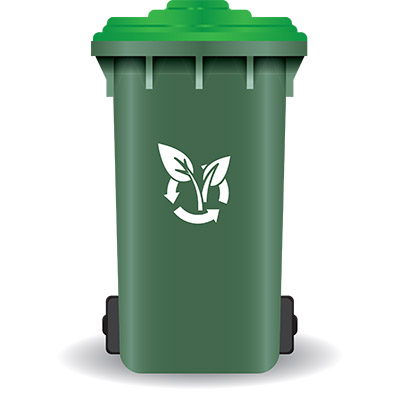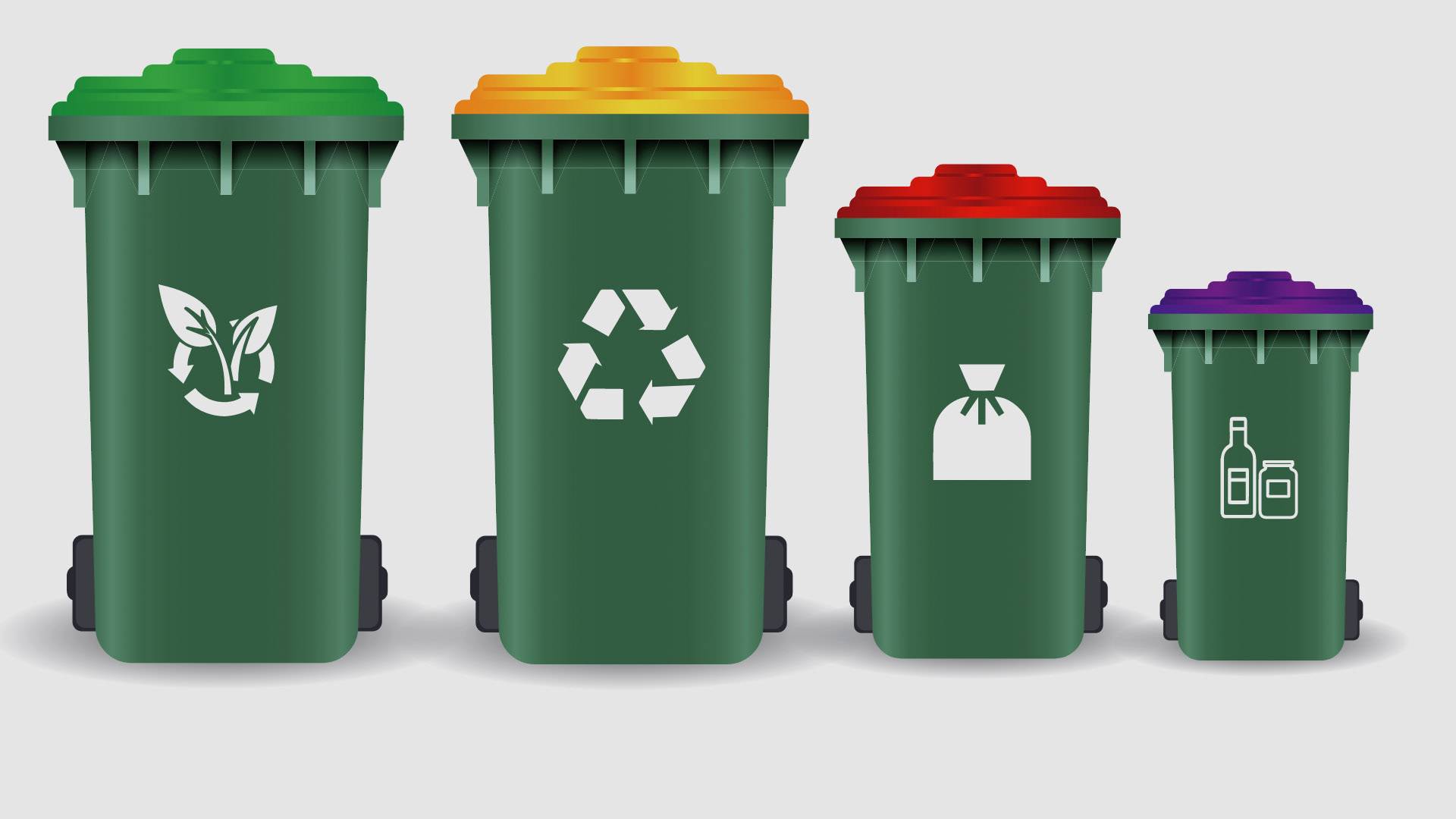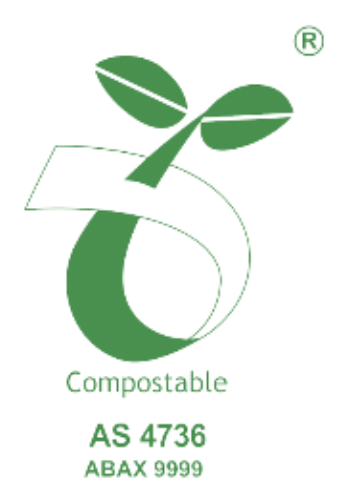When are bins collected?
All bins in Warrnambool are collected fortnightly. Glass (purple) and Recycling (yellow) one week, Landfill (red) and FOGO (green) the next.
To find out which Collection zone your property is in and when your bins are collected, type your address below.
Warrnambool has 10 collection zones (named after indigenous animals).
To find out which Collection zone your property is in download a map of the different zones here.
Once you know which zone you are in, download a printable collection calendar for each zone below.
| Monday | Sea Lion Koala |
|---|---|
| Tuesday | EelWhale |
| Wednesday | RakaliSwamp Wallaby |
| Thursday | StingrayEchidna |
| Sunday | PlatypusLittle Penguin |
Bin placement
Do you live in a court?
To reduce noise and the number of times a truck has to reverse in a court, and therefore, the safety of residents and children, please place your bins along the straight section of the court.
Place bins on the left hand side of the court as the truck would drive into the court.
Be mindful that you are placing your bin on someone else’s nature strip and ensure all rubbish is wrapped carefully to avoid littering when it is windy.
To help our collectors and ensure your bin is emptied each week following these guidelines.
Correct
- Bin wheels facing the property.
- Bin handle facing away from the road.
- Bin close to the edge of the kerb.
- Bins to be at least 1 metre apart.
- Make sure bin lids close easily.
- Bins should be placed out by 8pm.
Incorrect
- Don’t overfill your bins - make sure lids close.
- Bins that are overfilled are difficult to empty and can cause litter to spill and attract unwanted pests.
- Extra bags will not be collected.
- Collection vehicles cannot pick up heavy bins (over 80kg).
- Only put the right material in each bin - some materials can damage collection equipment, injure workers or contaminate the process. Bins cannot be collected if they contain incorrect material.
- Make sure your bins are accessible.
- Ensure garbage is bagged or wrapped securely - helps reduce spillages and odours.
- Don’t jam waste into your bins - it makes collection difficult and can lead to waste remaining in your bin after collection.
New, Replacement or Missed Bins
During stormy or high wind days/nights, we recommend the following:
- If your bin has little to no volume and can wait a fortnight, don’t place it out for collection.
- Collect empty bins as soon as practicably possible to avoid the empty bin being blown away in the wind.
- If you find a bin that is not yours, within or in front of your property, either place the bin in front of the correct house or leave it on the nature strip laying down and notify council that a bin has been found.
- If you lose your bin in the storm, contact Warrnambool City Council via (03) 5559 4800 to request a replacement bin. If you find your bin before or after a replacement has been delivered, call Wheelie Waste via (03) 5564 3700.
For any of the following issues, please contact Warrnambool City Council
- If you have moved into a new home and need to order a recycling, landfill, glass and FOGO bin.
All bins provided by Council must stay at the property to which they were issued. Bins remain the property of Council. - If your recycling, landfill, FOGO or glass bin is lost, damaged or stolen
- If you put out your recycling, landfill, FOGO or glass bin on time and in the right place but it was not collected
- If you have a question about rubbish or recycling bins
Stolen/Missing Council Bin Declaration Forms
Stolen/Missing Council Bin Declaration - Waste, Glass, Recycling
Stolen/Missing Council Bin Declaration - FOGO
You can download the appropriate Stolen/Missing Council Bin Declaration and send to [email protected] upon completion or visit our Council Offices at 25 Liebig street to fill out the document in person.
Commercial Premises for Kerbside Collection Application Form
Kerbside Collection - Application for Commercial Premises
For a Commercial Premises to be eligible for kerbside collection, the location must be outside of the CBD.
Commercial Premises within the CBD may make a private arrangement with a waste contractor.
About the four-bin system
The main aim of the four-bin system is to minimise the amount of waste being sent to landfill. Sending rubbish to landfill is the least preferred waste treatment outcome. It is also very expensive because the Victorian Government charges a landfill levy which has risen significantly in recent years. Recycling or re-using household waste brings about better environmental outcomes and is more cost-effective.
Landfill Bin - Red
 So what goes in my landfill bin?
So what goes in my landfill bin?
- Nappies
- Sanitary and incontinence products
- Polystyrene including meat trays
- Black absorbent inserts from meat trays
- Chewing gum
- String and rope
- Disposable coffee cups
- Plastic straws
- Milkshake, soft drink and ice cream cups
- Tetrapaks (currently no recycling option for these in Australia but the industry & Tetrapak are working on it)
- Toothpaste tubes & brushes
- Sushi fish, sauce and flavour sachets
- Soft plastics
- Food wrappers including lolly and chip wrappers
- Plastic bags
All food waste and food scraps go into your FOGO bin for composting.
Larger landfill bin for medical waste
A larger 240l landfill bin is available to residents who require a larger bin for disposal of medical waste.
To discuss obtaining a larger bin, please call Council on 5559 4800.
FOGO Bin - Green

Warrnambool households are provided with a FOGO (food organics, garden organics) bin. The maximum weight permitted in the FOGO bin is 80kg.
the items below belong in the FOGO Bin
- Fruit scraps including citrus
- Vegetable peelings and scraps
- Eggshells, bakery goods and dairy
- Rice and Pasta
- Prunings, flowers and leaves
- Raw and cooked meat (including bones)
- Lawn clippings and weeds
- Human and animal hair
- small sticks, tooth picks, skewers and uncoated chopsticks
Bin Packing Tips
- Pack FOGO material loosely.
- Avoid stamping down or packing in the contents to make more room.
- If your bin is filled with only grass clippings or only leaves ensure they are loosely packed.
- Alternate or layer drier organic materials such as twigs & prunings with grass clippings.
- If there is still a few days before collection, leave grass clippings out to dry and place them in the bin just before collection.
- Place drier items such as loose prunings on the bottom of the bin first before placing your grass clippings in the bin.
Heavy Bins
If you are struggling to move your FOGO bin, it will be too heavy for the hydraulic arm on the collection truck to lift. Moving bins that are too heavy may also cause injury, so remove some of the material out of the bin and leave it for next time. Soil does not belong in your FOGO bin. Shake soil off plant roots when weeding and place any excess soil back on your garden.
FOGO Bags
FOGO Bags can be purchased at
- Supermarkets
- Bunnings
Keep an eye out for the Seedling logo, this will ensure that the liners you are buying are certified compostable
For a detailed list check the A-Z FOGO list
- Where does FOGO go?
- Kitchen caddies and liners
- Bin packing tips
- FOGO - Korean
- FOGO- - Mandarin
- FOGO - Vietnamese
- FOGO - Indonesian
- FOGO - Japanese
Benefits of FOGO:
By keeping FOGO out of landfill and composting it, valuable resources are being recycled, helping improve soils and capture carbon on local farms.
Composting also generates significantly less methane (a potent greenhouse gas) than disposing of FOGO to landfill.
Composting FOGO can create cost savings for Council and the community, because disposal to landfill of the same material costs more than composting it.
What happens to your FOGO?
Your FOGO is delivered to Camperdown Compost Company which is an EPA licensed site producing compost that meets Australian Standard AS4454.
Over 3 months, the material is mulched, mixed with other organic material and moisture is added. Long piles (windrows) are formed where microbial activity starts breaking down the material.
The temperature is kept at 55-65 degrees Celsius, pasteurising the compost and destroying weed seeds and pathogens. The compost is turned, keeping it active. The end product is screened depending on end use.
The end product is sold mainly to local farmers for mulch, landscape soil, top dressing and broadacre fertiliser.
Already composting or worm farming?
FOGO complements your home compost by dealing with those hard to compost items like oyster and egg shells, avocado and mango pips. It also accepts items that you don’t really want to put in your compost like meat, bones, dairy, citrus and onions.
Glass Bin - Purple

This bin is used to recycle glass items, like jars, bottles, and broken glassware. Keeping glass separate improves the quality of Warrnambool’s other recyclable materials, so they can be processed into new items, more easily and efficiently.
Please empty and clean containers before you place them in the bin.
Collected glass will be taken to a local transfer station, where it is checked for contaminants, crushed, and repurposed for use in local construction projects around the City of Warrnambool. So far, the equivalent of 300,000 glass bottles have been used in local road work projects, including Walsh Rd, Dickson St, Botanic Rd and Younger St.
Excess glass can be disposed of at Cleanaway (355 Koroit St, Warrnambool VIC 3280) , free of charge.
While a glass collection is mandated for all Councils, the Victorian Government has also introduced a container deposit scheme for select containers.
Information on the container deposit scheme.
Recycling Bin - Yellow

Common Recycling Contaminants
These are some common items that are incorrectly placed into the Yellow Recyling Bin.
- Household glass (Purple Bin)
- Shredded paper (Green Bin)
- Tissues and paper towels (Green Bin)
- Bagged recycling (Recycling Needs To Be Loose)
- Soft plastics (Red Bin)
- Tetra pack containers i.e. long life milk (Red Bin)
- Soiled cardboard (Green Bin)
- Foam and polystyrene (Red Bin)
All Warrnambool households are provided with a recycling bin.
The yellow-lidded bins accept recyclable materials including paper and cardboard, metal and aluminium cans and plastic containers which contain recycling codes.
Please empty and rinse containers before you place them in the bin.
Please note: soft plastics, such as plastic bags, don't go in your recycling bin.
Items for recycling include:
- Paper - all types including magazines, pamphlets, note pads, envelopes and office paper.
- Cardboard - archive boxes, food boxes and packing boxes.
- Plastic - keep lids and labels on plastic bottles, yoghurt containers and fruit punnets are recyclable.
- Steel - food containers.
- Aluminium - foil, drink cans. Scrunch foil into a loose ball.
Do NOT put the following in your recycling bin:
- Soft plastics - bags, wrappers, cling film.
- Foam and polystyrene.
- Electrical and electronic items.
- Food scraps.
- Tissues and paper towels.
- Nappies.
- Gas cylinders.
- Clothing.
- Batteries.
- Glass.
- Garden waste.

